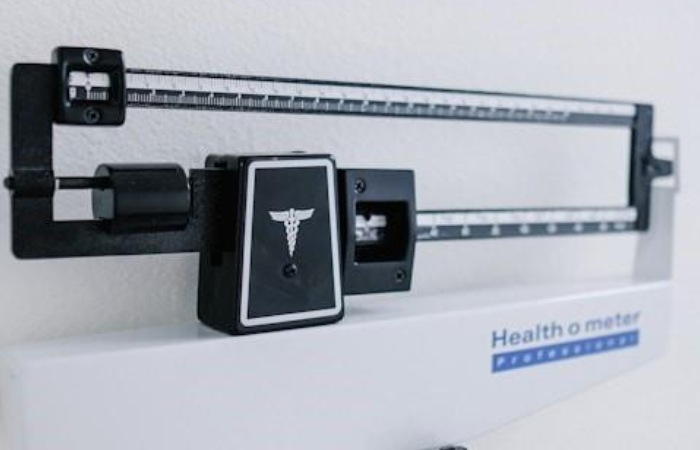Life insurance is valuable for individuals and their loved ones, but each person can be charged a different amount for coverage.
Carriers consider variables such as weight, height age, medical profile to assess an applicant’s risk. Visit – Can You Get Life Insurance If You’re Overweight? – to learn how to get life insurance if you’re overweight.
If the person is overweight, or the weight and height are not in alignment according to the insurance company guidelines, it can affect approval and the premium rates. Life insurance rates can be higher if you’re considered overweight or obese.
These factors put applicants at risk for developing life-shortening conditions, like diabetes or heart disease. Unless there’s a debilitating issue, such as limited mobility or other severe weight-related health issues, it’s unlikely coverage will be rejected.
An insurance carrier will, in fact, offer credits for better premium rates for athletes with high BMIs but low body fat percentages.
Carriers base your rating on a build chart similar to BMI – body mass index calculations for which there’s a minimum and maximum weight limit for a given height and factor in gender (sometimes) and age. Click here for tips on obesity management drugs and learn what they mean for life insurance.
Despite having a nonoptimal BMI, you may still qualify for the best ratings, other health factors will contribute.
How Weight Affects Your Life Insurance Rating

Insurance carriers will designate your rating category and base it on a build chart calculation. The rating categories include:
- Preferred plus: Those in excellent health with a profile that shows no medical issues fall into this category. Those over the ideal weight for their height are less likely to receive this rating.
- Preferred: For those with a medical profile for minor medical issues or family history of moderate conditions but otherwise are in excellent condition, you’ll fall under the Preferred category. An example would be smokers who would otherwise be Preferred Plus if not for the tobacco.
- Standard plus: This category includes individuals in good health with a negative family history or a single condition that exempts them from the Preferred rating.
- Standard: People with a few common issues, like blood pressure or high cholesterol, average but manageable health concerns, would be standard. Overweight or obese individuals would also fall into this category.
- Table ratings: These are high-risk Unless your BMI is extremely high, it’s unlikely that you’ll be grouped in this category for life insurance strictly based on weight.
With each category, life insurance carriers have a minimum/maximum weight limit for a specified height and considering gender (in some cases) and age. The higher your body weight and BMI, the more the premium for your life insurance regardless of the carrier.
The cutoff and other factors that qualify applicants for the different categories vary from one carrier to the net.
For instance, a 200-pound male considered overweight might be categorized as a preferred applicant with one life insurance company while another finds him to be a higher risk and classifies him under the standard category.
The weight tables are approximates because carriers don’t want to exclude those with a high BMI but fit, muscular frame; there could be a healthy reason for your BMI to be outside the acceptable range.
Why Do Life Insurance Carriers Have BMI Criteria
Life insurance companies base their rates on the risk they determine from a prospective client and the potential for a premature death during the policy term. Many serious risks are associated with being overweight or obese, such as:
- Kidney disease
- Heart disease
- Fatty liver disease
- Stroke
- Osteoarthritis
- High cholesterol
- Sleep apnea
- Diabetes
- High blood pressure
Regardless of whether you currently struggle with one of these conditions, the carrier may not offer one of the higher ratings if you’re outside the expected weight limits, because a high BMI increases the risk at some point.
Once a policy is in place, the carrier can’t change the premium, they need to assess the risk according to your current circumstances.
The priority is to shop and compare life insurance companies to find a policy that meets your needs and fits your budget. Insurance Hero is a trusted life insurance carrier offering the best high BMI, overweight insurance rates. Watch this video to learn more.
Getting The Best Life Insurance Rates When Overweight
The life insurance company will inquire about your lifestyle and health and check this against medical reports and exams. The priority is to be honest and report all relevant medical details to ensure you get the best ratings.
If you include a regular fitness routine and balanced diet as part of your daily regimen and these are monitored by your healthcare provider and you have no weight-related medical concerns, the life insurance company will be more likely to give you a better rating.
When you’re overweight with no other medical concerns, life insurance companies will offer policies with good ratings. The same is true for those with a high BMI and considered obese but otherwise healthy.
Poor ratings are usually the result of weight-related complications, which can include developing an illness, such as diabetes, or having a family history of heart attacks.
By preparing for the life insurance medical exam, you can improve your health rating. You want to schedule the exam for first thing in the morning after having fasted to ensure a positive rating.
Weight can fluctuate by several pounds throughout the day as food and drinks are consumed. An early morning, fasting exam can alleviate some of that variable.
You also want to request that the insurance carrier conduct a new medical exam a couple of years after you buy the policy. This way if you lose weight, you could qualify for lower premiums.
In that same vein, you can compare quotes from other carriers to see if you qualify for a less expensive policy with another company.


